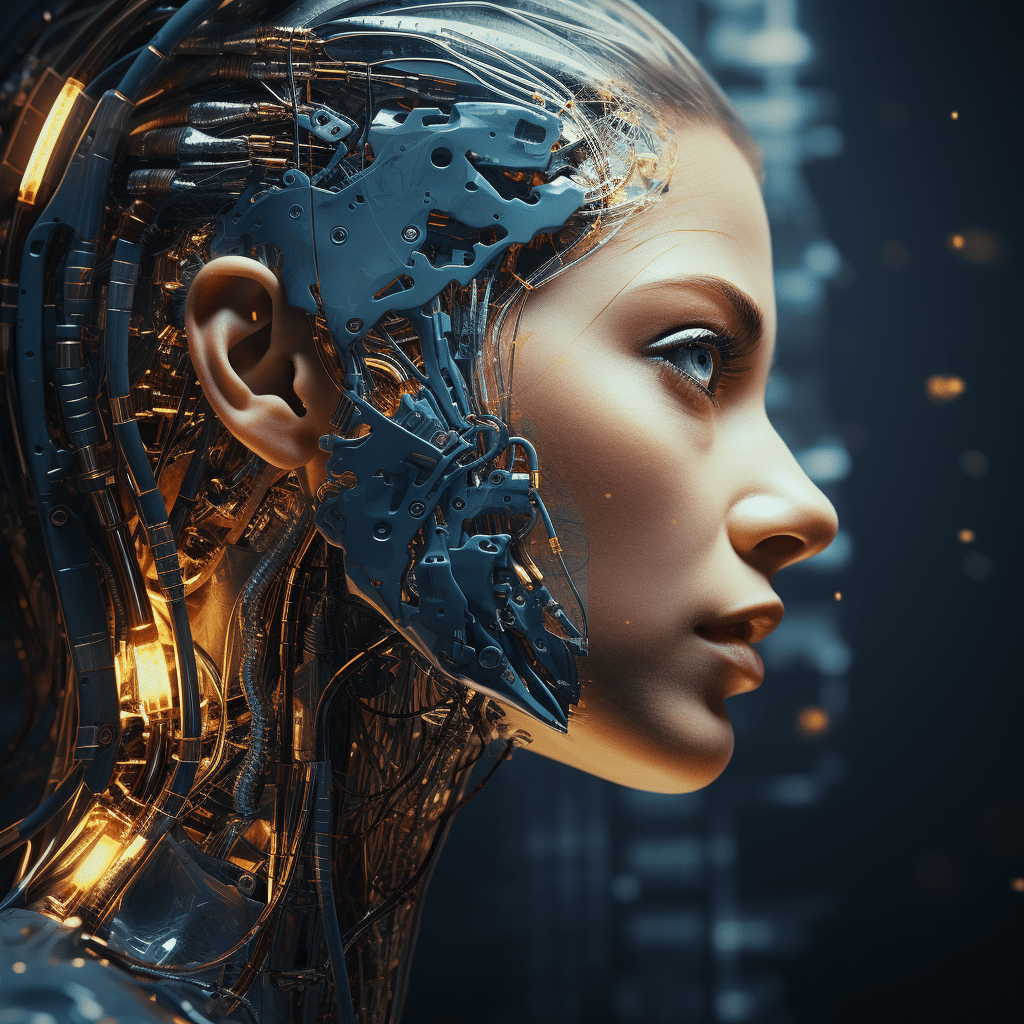Pioneering the AI Programming Landscape of 2023
The Core of Artificial Intelligence Programming: A Modern Understanding
Artificial intelligence (AI) programming is more than developing codes for smart devices. It actively orchestrates the intelligent behavior of a machine – allowing it to reason and learn like humans while often exceeding human capabilities. Delving into the realm, AI programming involves using programming languages, AI frameworks, and code editors to develop AI applications that perform tasks, such as predicting customer trends, generating content, and identifying risks with little to no human intervention.
AI Programming: A Preeminent Component in Today’s Cognitive Computing
The emergence of AI and its pervasiveness in today’s world remains hard to ignore. If you were to equate it to a “buff man,” with its flexed and toned cognitive muscles ready to show off, you wouldn’t be far from the truth. AI has created novel opportunities in nearly every major industry, from healthcare to gaming and finance. The importance of AI programming in this cognitive computing wave can’t be overstated – it’s the invisible hand shaping what we perceive as ‘intelligence’ in machines.
The Role of AI Programming in Driving Artificial Intelligence
The AI Programming Backbone: Languages, Frameworks, and Libraries
To grease the AI machine efficiently, programming languages such as Python, R, Java, and C++ are used. But, it’s not just about the language; it’s also about the frameworks and libraries employed. For instance, Python, often touted as the darling of AI developers, owes much of its popularity to robust libraries and frameworks like TensorFlow, PyTorch, and Keras designed to process, analyze and visualize data.
AI Programming in Machine Learning: Creating Intelligent Systems
AI programming in the field of machine learning has been transformative. It has brought “life” to rudimentary machines, arming them with traits such as adaptability and cognitive capacity. Here, AI programming influences systems to learn from data, derive insights and make informed decisions – from self-driving cars avoiding collisions to voice assistants understanding and responding to complex commands. All these instances of ‘intelligence’ are propelled by the relentless gears of AI programming.

| Subject | Details |
|---|---|
| Overview | Artificial intelligence programming involves using programming languages, AI frameworks, and code editors to develop applications that perform tasks with minimal human intervention. |
| Programming Languages | Common languages used in AI programming include Python, R, Java, and C++. Python is the most commonly used language in machine learning due to its power as a data analysis tool. |
| AI Programming Capabilities | AI is not yet able to write complex code like human programmers, but it is improving in this field. It allows computers to make decisions independently. Though AI involves more than just coding, coding is an essential component in building AI systems. |
| Skills Required | Two key skills required to become a successful AI developer are programming and knowledge of coding in multiple languages. Others important skills include knowledge of cloud technologies, and soft skills like problem-solving, logical thinking, and collaboration. |
| Roles & Responsibilities | AI programmers use algorithms and codes to train machines to behave like humans. This requires knowledge in applied mathematics, probability, and statistics. |
| Learning Path | A solid foundation in computer science, particularly Python, is necessary. Understanding of basic algorithms and principles of machine learning and data science are important. Practical application of these principles through projects available on websites like Kaggle and GitHub is useful. |
| Career Overview | AI programmers work with complex tasks like learning, decision-making, and problem-solving using machine learning to simulate human intelligence. This allows software to handle tasks of increasing complexity and sensitivity. |
| Use in Gaming | In games, AI programming cores can play part in game mechanics. For example, discarded AI Programming Cores can be traded for in-game items or currency. |
Intricacies of AI Programming Explained
Reasoning and Learning: The Heart of AI Programming
Imagine gripping a ballet dancer while wearing bulky boxing gloves. Just as the gloves inhibit delicate movements, foundational programming languages limit the intricacies involved in teaching machines to reason and learn. AI programming, however, is akin to removing these gloves. It equips machines to draw abstract relations, analyze patterns, and make accurate predictions from data, much like a neural network mirroring the human brain.
Making Decisions: How AI Programming Structures Choice-Making Paradigms
Decision-making in traditional software is largely linear and deterministic. But, with AI programming, decision-making is modeled to emulate the dynamism and adaptability of the human mind. The AI takes a multitude of factors into account, computes their weights, and processes them to generate output – a process that’s improvised and optimized continually. This mimicking of human decision-making forms the core of AI programming’s importance.
The Future of AI Programming: Predictions for Next-Gen Cognitive Technologies
The Evolution of AI programming: Exploring the Current Trends
When we look at the current landscape, the evolution of AI programming oscillates between fact, fantasy, and anticipation. Still trying to grasp the breadth of possible “applications of artificial intelligence,” many seek to actualize ideas that were only theories a decade ago. For instance, there is ongoing research into creating AI algorithms that can write complex codes, which could reshape the landscape of software development.
Future Forecast: AI Programming for Tomorrow’s Artificial Intelligence
Based on present trends, one could speculate on the future of AI programming. Could we have hyper-intelligent machines that exceed human cognitive abilities? Or could AI technologies be integral to daily life as electricity is today? Given the impetus of AI programming projected from current developments, these possibilities are not as farfetched as they may seem.

Mastering the Cognitive Edge: Empowering AI Programming
Staying Ahead: Maximizing AI Programming for Competitive Advantage
For individuals and organizations trying to get their foot in the disruptive “ai business”, maximizing AI programming skills is imperative. Stepping into the AI industry requires determination, focus, a solid foundation in computer science, familiarity with languages like Python, and a grip on machine learning principles. Websites like Kaggle and GitHub provide a treasure trove of resources for honing AI programming skills through real-world “ai projects”.
AI Programming: The Catalyst for Revolutionary Cognitive Technologies
In the world of cognitive technologies, AI programming plays the part of a catalyst, setting the stage for revolutionary possibilities. It promises to usher in technology that transcends traditional boundaries while galvanizing the world with enhanced and increasingly intelligent tools. Simply put, mastering AI programming unlocks the door to this cognitive revolution.
The AI Programming Paradigm: Transcendence and Transformation
AI Programming: More Than a Futuristic Concept
AI programming is no longer a fringe, futuristic concept – it’s woven into the fabric of our lives. The prevalence of AI-powered software, capable of tasks such as learning, decision-making, and problem-solving, demonstrates this. Stamped on numerous applications, AI programming is ready to topple traditional computing and transform industries.
AI Programming and its Implications: An In-Depth Perspective
Parallely, AI programming isn’t devoid of challenges. The fears of artificial intelligence are as active as its promises. Concerns about job losses, data breaches, human-like machines, and ethical dilemmas persist. A robust legal and ethical framework to manage such implications is required.

Mastering AI Programming: Demystifying the Cognitive Frontier
Steps Towards Mastering AI Programming
Efforts to master AI programming are akin to training for an athletic event, requiring patience, effort, and regular practice. The race begins with gaining a strong foundation in math and computer science . An understanding of AI algorithms followed by hands-on experience through real-world projects is instrumental. Picking up AI frameworks and libraries alongside honing soft skills like problem-solving prepares the player for the cognitive marathon.
AI Programming: The Key to Unlocking Next-Gen Cognitive Capabilities
AI programming is more than a means to an end – it’s the key to unlocking next-generation cognitive capabilities. Mastering AI programming taps into a world of possibilities, from optimizing business processes to revolutionizing healthcare and forging a digital society. It might seem daunting, but with rigorous effort and armed with the right resources, even the seemingly inscrutable world of AI programming can be decoded for mastery.
The Cognitive Edge: Fully Harnessing the Power of AI Programming
AI Programming’s Influence: Beyond Machinery to Society
The influence of AI programming isn’t limited to machinery; it reaches out, reshaping society and numerous industries. It’s a cascading domino effect where AI programming amplifies cognitive capabilities in technology, which, in turn, redefine how we work, entertain ourselves, manage health, and communicate, creating impactful “advantages of artificial intelligence”.
Mastered AI Programming: The Ultimate Cognitive Edge
In the AI programming domain, being ahead of the curve offers an unparalleled cognitive edge. It equips individuals and organizations alike to seize opportunities, test the waters before they warm up, and make a difference even before the convention catches up. And this edge, derived from an in-depth, hands-on understanding of AI programming principles, methods, and practicalities, is the ultimate destination of every AI trailblazer.
What is AI programming?
Well, AI programming in its purest form is all about training computers to mimic human thoughts and behavior. Technically, it’s a series of algorithms that serve as a comprehensive guide for the computer, instructing it to think intelligently just like us humans do. It’s as though we’re creating a virtual Einstein, ever at our beck and call!
What coding is required for AI?
Now, when it comes to the coding required for AI, most of the work is done in high-level languages like Python, Java, C++, etc. It ain’t a cakewalk, mind you! You gotta have a solid base in mathematics and programming to handle the heavy lifting involved.
Is AI a form of coding?
Interesting you should ask if AI is a form of coding, because it’s not really. AI is a field of study in computer science, whereas coding is basically writing instructions for computers to perform specific tasks. So, it’s kinda like saying cooking is a form of an oven. Doesn’t make sense, does it?
Is AI just computer programming?
If you’re wondering if AI is just computer programming, you’re barking up the wrong tree, friend! AI is a whole new level of complexity compared to ordinary coding. It’s about enabling machines to learn and enhance their “knowledge” through experience, pretty much like what humans do!
What language is AI coded in?
AI is typically coded in high-level languages like Python or Java, with Python being the favorite owing to its simplicity. But remember, it’s not about which language you use, it’s all about how well you train your AI model!
Is AI better than coding?
Is AI better than coding? Well, they’re comparing apples to oranges! AI involves coding, but it also brings much more to the table, like learning from data, predicting outcomes, and making decisions. It’s like asking if a 5-star dinner is better than a potato – the latter is part of the former.
How do I start coding for AI?
Ready to start coding for AI? Brilliant! Start with learning a high-level language like Python, and get your mind wrapped around concepts of Machine Learning, Neural Networks, Statistics, and more. It ain’t gonna be a picnic, but boy, the hard work will pay off!
Can I learn AI without coding?
Learning AI without coding, you say? Possible, but not as effective. Sure, you could use platforms that offer pre-built AI models, but to truly understand the nitty-gritty of AI, you oughta get your hands dirty with some coding.
How to code an AI for beginners?
For beginners wanting to code AI, the road starts with learning a coding language (Python is a hot favorite), followed by studying Machine Learning, AI algorithms, and Neural Networks. Don’t worry, with dedication and lots of practice, you’ll soon get the hang of it.
Is coding dead 2023?
Coding dead by 2023? Heck, no! Rather, the demand for skilled coders is on the rise, and ain’t likely to drop anytime soon. Forget about rumors of the “death” of coding, and remember, who’s gonna program all those AI models without coders?
Is AI replacing coding jobs?
Is AI replacing coding jobs? Not really, instead, it’s changing them. AI might be handling repetitive coding tasks, but you’ll always need a human brain behind it, to design, implement, and troubleshoot AI models.
Can AI learn on its own?
Can AI learn on its own? Indeed, it can. With something called Machine Learning, AI models can learn from data and improve their performance. Spooky, right? But don’t fret, it’s not about to launch Skynet or anything!
Is programming a dead field?
Believe that programming is a dead field? Think again! With technological advances happening faster than you can say ‘Python’, the need for programmers is only skyrocketing. And, with AI technology evolving, the need for skilled programmers has never been greater.
Is programming dying due to AI?
Is programming dying due to AI? Far from it, compadre! AI technology actually represents a new frontier for programming, creating niches and specialties that we’re just beginning to explore.
Who invented AI?
Who invented AI? Credit goes to the late John McCarthy, yep, he came up with the term “Artificial Intelligence” way back in 1956, when Elvis Presley was still shaking up the music world!
What are 4 types of AI?
Talking about the 4 types of AI, we’re looking at Reactive Machines, Limited Memory AI, Theory of Mind AI, and Self-Aware AI. Each of these represents a milestone on the road to creating intelligent machines that can interact and learn just like us humans.
What is AI in simple words?
AI, or Artificial Intelligence, in simple words is all about making computers think like humans. It’s a way to get machines learning and improving on their own, solving problems, making decisions, and even understanding human emotions. It’s like having a highly efficient, super-intelligent virtual assistant at your disposal!





















